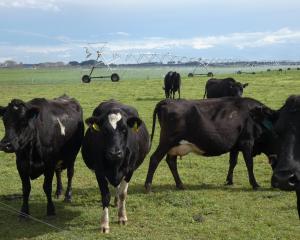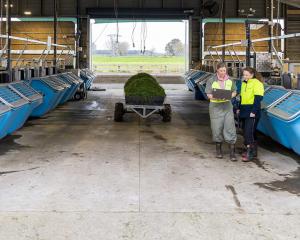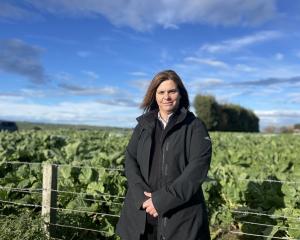Synlait Milk made a net profit after tax of $40.7 million for the six months ending January 31.
In the same period last year, the Dunsandel-based company’s net profit was $10.6 million.
Managing director and chief executive John Penno said the strong earnings growth was driven by increased manufacture and sales of the products with the highest margins, plus improved margins and earlier sales of ingredients products.
Canned infant formula demand led to volumes almost three times those in the corresponding period last year.
‘‘Our relationship with The a2 Milk Company continues to strengthen, where we remain their exclusive manufacturer for the important Australia, New Zealand and China market.
‘‘We have also renegotiated our supply agreements with New Hope Nutritionals and with Bright Dairy, which provides for fourfold volume growth over a five-year period. However, we don’t expect this to impact sales until [the 2019 financial year].’’
Dr Penno said the company’s developments were ‘‘highly targeted’’ to market opportunities it had identified.
‘‘We will realise the value many times over with the returns we achieve.’’
Meanwhile, Fonterra’s 2018 interim results showed a normalised net profit after tax of $248 million — down 36% from the 2017 interim results.
Net profit after tax was a $348 million loss, down 183%.
Revenue was $9.8 billion, up 6% from the 2017 interim results.
The investment impairment in Chinese infant formula distributor Beingmate was $405 million.
Other announcements included a forecast farmgate milk price of $6.55 per kilogram of milk solids, an interim dividend of 10 cents per share to be paid this month, a full-year forecast dividend range of 25c to 35c per share and a total forecast cash payout of $6.80 to $6.90.
Chairman John Wilson said farmers would appreciate the forecast cash payout, the thirdhighest in the last decade.
Beingmate’s continued underperformance was unacceptable, he said.
‘‘An immediate business transformation is needed for Beingmate to benefit from the ongoing changes in the market.’’
In December, Fonterra paid $183 million to Danone, resulting from the 2013 precautionary product recall.
Given the possible impact of the Beingmate and Danone decisions, the forecast full-year dividend range was 25c to 35c per share, rather than the earnings per share guidance usually given.
‘‘While our reported net profit after tax shows a loss of $348 million, it includes the payment to Danone and the Beingmate impairment,’’ chief executive Theo Spierings said.
‘‘As these are one-off events, our normalised net profit after tax of $248 million is a better reflection of our underlying operating performance for the half-year.’’
Mr Spierings was stepping down from his job, which was being advertised internationally, Fonterra said.














